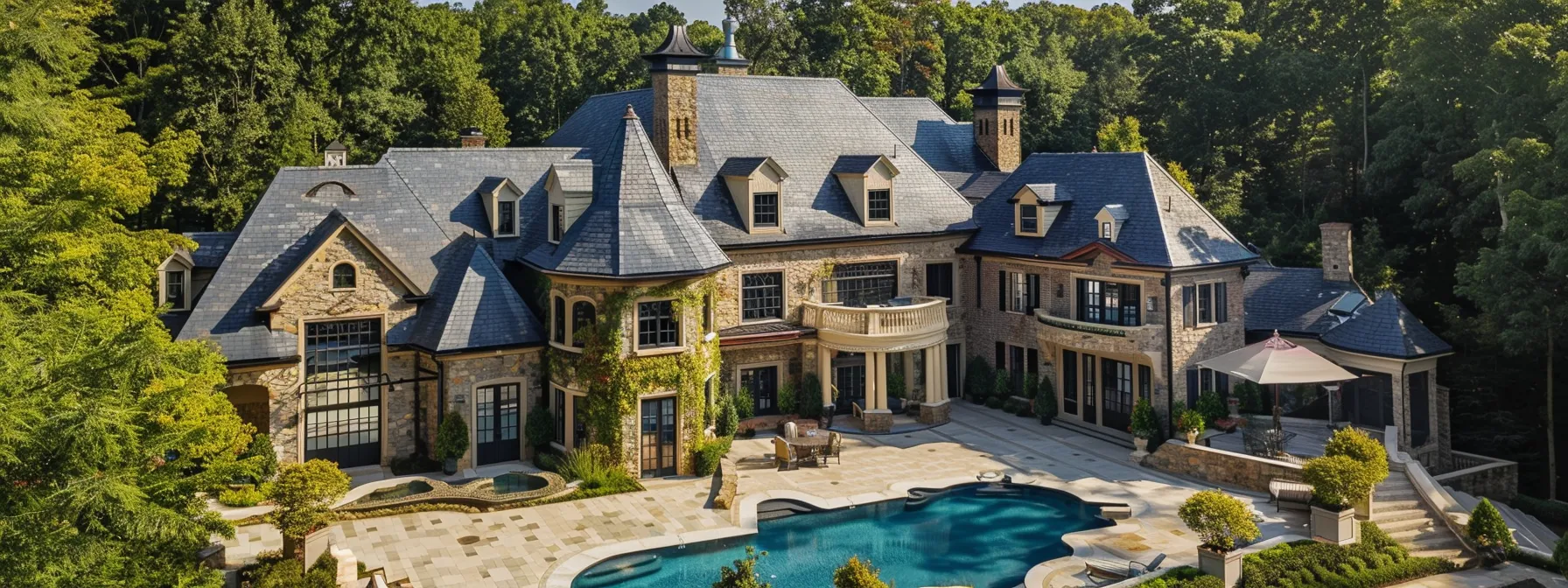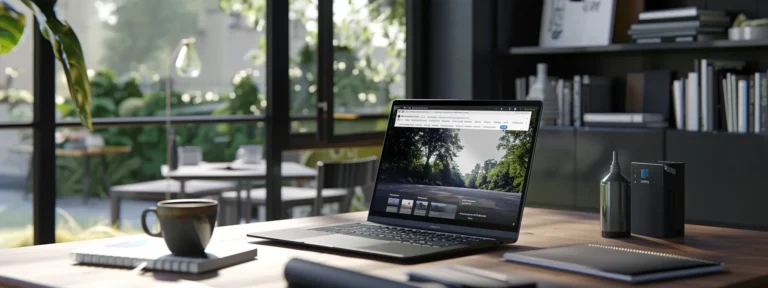Heads Up: When you purchase through links on our site, we may earn an affiliate commission at no cost to you.
If you’ve been curious about how to get into real estate investing without taking on massive debt or applying for a mortgage, wholesaling might be your perfect entry point. For people asking, “What exactly is wholesaling and how do I start?”—you’re in the right place.
Learning how to wholesale real estate means understanding how to connect motivated sellers with cash buyers, while earning a profit without ever owning the property. It’s legal, low-risk (if done right), and doesn’t require a real estate license in many states. That’s why it’s popular among new investors, agents, and those looking to build additional income streams.
This guide will walk you through every step, from contracts and deal analysis to legal issues and negotiation tips, so you can start wholesaling with confidence and unlock real profit potential.
Key Takeaways
- Wholesaling real estate means assigning a contract for profit without owning the property.
- You must get properties under contract at a deep discount to leave room for your fee and buyer profit.
- Key documents include the purchase and sale agreement and the assignment contract.
- Build a buyers list early—this will speed up closings and reduce risk.
- Utilize tools such as CRMs, Propstream, and DocuSign to streamline your workflow.
- Understand your local real estate law—some states require a license.
- Always run the numbers using comps, rehab estimates, and the 70% rule.
What Is Real Estate Wholesaling and How Does It Work?

Wholesaling is one of the fastest-growing strategies in real estate investing—and for good reason. Instead of buying and renovating a property yourself, you act as the intermediary between a seller and an end buyer.
Here’s how it works:
- You find a property (often undervalued, in distress, or facing foreclosure)
- You negotiate a purchase and sale agreement with the seller
- Instead of closing on the property, you assign the contract to another investor
- That buyer pays you a wholesale fee (typically $5,000–$20,000+) for finding the deal
You never take ownership. You don’t apply for a loan, and you don’t need to make a down payment. You’re selling the rights to a contract, not the property itself.
Why It’s Different from Flipping
Unlike flipping, which involves buying, renovating, and reselling a property, wholesaling skips the renovation and risk.
- No need to manage contractors or permits
- No waiting for market value appreciation
- No mortgage payments or interest accrual
It’s all about speed, negotiation, and finding deals below fair market value.
Who Benefits from Wholesaling?
- First-time investors without a lot of capital
- Agents are building their network and knowledge base
- Savvy entrepreneurs with strong research and cold-calling skills
- Anyone looking to enter real estate without heavy financial risk
- Instant feedback
- Valuable insights
- Actionable tips
Step-by-Step Guide to Wholesaling Your First Property

Wholesaling real estate is all about process. If you follow a proven framework, you can minimize risk, stay compliant with real estate law, and turn a solid profit without holding the asset.
Here’s exactly how to get started.
Step 1: Find a Motivated Seller
This is where the deal begins. Look for property owners who are:
- Facing foreclosure
- Behind on taxes or mortgage payments
- Inherited a house they don’t want
- Landlords are tired of tenants and repairs
- Holding distressed properties or abandoned homes
Where to find them:
- Direct mail campaigns
- Driving for dollars
- Cold calling using public records
- Auction websites and pre-foreclosure lists
- Online ads and digital marketing
The goal is to identify people who want to sell fast and who are willing to accept a discounted price in exchange for speed and convenience.
Step 2: Analyze the Deal
Once you find a potential seller, do your due diligence.
- Use the 70% rule:
(ARV × 70%) – Estimated Repairs = Max Offer - Run comps using the Multiple Listing Service (MLS) or tools like Rocket Mortgage to determine market value.
- Walk the property if possible, or do a virtual tour
- Estimate renovation costs—even if you’re not flipping, your cash buyer will want accurate numbers
If the numbers work and there’s room for both buyer profit and your fee, move forward.
Step 3: Secure the Property Under Contract
You’ll need a standard purchase and sale agreement, with an assignability clause.
Key terms to include:
- Purchase price
- Closing timeline
- Earnest money deposit (often $10–100 in wholesaling)
- A clause that allows you to assign the contract
Make sure both you and the seller understand the contract. While you may not need a real estate license, acting unethically or failing to disclose your role as an intermediary can land you in legal trouble.
Step 4: Assign the Contract to a Cash Buyer
This is where the money is made. You’ll use an assignment contract to transfer your interest in the deal to your end buyer. They pay you an assignment fee, which could range from a few thousand dollars to much more, depending on the deal size.
What buyers look for:
- Instant equity
- Fast closing
- Clear title
- Accurate repair estimates
- No surprises
Step 5: Close the Deal and Get Paid
Once your buyer signs and funds the deal:
- The title company or attorney handles the closing
- You receive your assignment fee via wire or check
- The buyer becomes the new owner, and the seller walks away
- No loans, no holding costs, no renovation timelines
That’s a wholesale deal from start to finish.
Essential Contracts and Legal Considerations
Wholesaling real estate can be a legit business model—but only if you understand the legal framework around it. Working without proper paperwork, skipping disclosures, or assigning contracts improperly can quickly turn your side hustle into a lawsuit.
Here’s how to do it right.
The 3 Key Contracts in Wholesaling
1. Purchase and Sale Agreement (PSA)
This is the initial agreement between you and the seller. It gives you an equitable interest in the property.
Key features:
- Must include an assignability clause
- Should outline price, terms, and closing date
- Needs an earnest money deposit—even if it’s just $10
Without a PSA, you don’t have legal rights to wholesale the deal.
2. Assignment of Contract
Used to assign your position in the contract to your end buyer. It outlines:
- The assignment fee you’re charging
- Who’s responsible for closing costs, inspections, etc?
- The terms and timeline for closing
3. Wholesale Addendum (Optional)
Some wholesalers use this to clarify their role and protect themselves from liability. It explains that:
- The buyer understands this is a wholesale deal
- You are not acting as an agent or broker
- The buyer agrees to the markup you’re making on the deal
Do You Need a Real Estate License?
In some states, yes. In others, no. And in many—it’s a gray area.
States like Georgia:
- Require careful compliance
- May view repeated wholesaling without a license as acting as a broker
- Strongly encourage transparency and seller disclosure
Check your state’s law or consult a real estate attorney before wholesaling multiple properties.
Common Legal Pitfalls to Avoid
- Assigning contracts without equitable interest
- Misrepresenting yourself as the property owner
- Advertising properties you don’t own (in some states, that’s illegal)
- Closing without a licensed title company or closing attorney
- Collecting fees outside of escrow
Pro tip: Always close through escrow, use written contracts, and keep all terms in writing—no handshake deals.
Title, Escrow, and Ownership Transfers
Even though you don’t buy the property, your buyer does. That means the title must be clear, and ownership must transfer legally.
- Partner with a title company familiar with wholesaling
- Be prepared to provide all contracts for compliance review
- Use escrow to collect your assignment fee legally and transparently
How to Build a Buyer’s List That Converts

You’ve got the deal under contract—now what? Without a solid buyers list, your wholesale opportunity can fall flat. This list is your primary asset as a wholesaler. The bigger and better your list, the faster you close—and the more assignment fees you can stack.
Here’s how to build a list of serious, ready-to-buy cash buyers who actually close.
Why Your Buyers List Is Everything
A strong buyers list means:
- You can assign contracts faster
- You can negotiate better deals with sellers
- You reduce the risk of last-minute fallout
- You create repeat business with trusted investors
Think of your buyers list as a shortcut to wealth—a curated network of people with the cash, credit, and interest to move quickly.
How to Find Cash Buyers
1. Direct Mail Campaigns
Send postcards or letters advertising available wholesale deals or inviting investors to join your buyer list. Include:
- Clear CTA (call to action)
- Your contact info
- A sample deal structure (property + ARV + wholesale fee)
2. Cold Calling and Text Blasts
Use public records or paid lead platforms to find recent cash buyers and landlords. Call or text with:
- A brief intro
- Your recent deal stats
- A link to sign up for your list
3. Networking
Go to:
- Real estate investment meetups
- Local REIA (Real Estate Investors Association) events
- Chamber of Commerce mixers
- Online real estate communities and Facebook groups
Build trust. Share insights. Stay professional.
4. Build a List Digitally
Use:
- Landing pages with opt-in forms
- Facebook or Google ads targeting “real estate investors”
- Email marketing tools (like Mailchimp or ConvertKit)
- A CRM or buyer management system to organize contacts
How to Qualify Buyers
Not every person who claims to be a cash buyer can close. Ask:
- Do you have proof of funds?
- What areas and price ranges do you buy in?
- Do you buy as-is properties?
- How quickly can you close?
- Do you buy with cash or use hard money loans?
A real buyer won’t hesitate to provide details.
What to Send to Your List
- Property details: price, address, photos
- ARV and estimated rehab costs
- Contract assignment fee
- Timeline for inspection and closing
- Disclaimers about property being sold “as-is”
The clearer your communication, the smoother your real estate transaction will be.
How to Find the Right Properties to Wholesale
Wholesaling success starts with sourcing the right deals. Without a pipeline of discounted, distressed, or off-market properties, you’ll struggle to generate meaningful income, no matter how strong your buyers’ list is.
Here’s how smart wholesalers consistently find deals that move.
What Makes a Property Wholesalable?
Not every house is a good wholesale candidate. You’re looking for:
- Motivated sellers (urgent need to sell)
- A property that’s undervalued or in distress
- Room in the numbers for your assignment fee and buyer’s profit
- Light to moderate renovation needs (flippers love cosmetic updates)
Your ideal deal? A property you can get under contract at 60–70% of its market value, leaving plenty of room for flipping, renting, or rehabbing.
Where to Find Wholesale Deals
1. Driving for Dollars
Physically scout neighborhoods looking for:
- Overgrown yards
- Boarded windows
- Code violations
- Vacant or run-down homes
Use apps like DealMachine or Propstream to build and mail to your target list.
2. MLS and Online Listings
Yes, wholesalers can work with listed properties—if the price makes sense.
- Watch for price reductions or homes that have been sitting for 90+ days
- Search for foreclosures, short sales, or estate-owned properties
- Use the MLS, Zillow, Redfin, and Rocket Mortgage to track inventory
Partner with a real estate agent to submit creative offers that include assignment clauses.
3. Public Records and Data Lists
Pull lists of:
- Tax-delinquent properties
- Pre-foreclosures
- Eviction filings
- Absentee landlords
You can get these from county websites or purchase them from list providers.
4. Digital Marketing for Motivated Sellers
Use:
- Facebook ads targeting distressed sellers
- Google PPC campaigns (“sell my house fast”)
- A simple landing page with a compelling call to action
- SEO + blog posts about avoiding foreclosure or fast home sales
Wholesalers who master internet lead generation stay booked year-round.
Know Your Market
Understanding neighborhood trends, price points, and buyer demand gives you a huge advantage.
Ask:
- What’s the average ARV in this ZIP code?
- What’s the typical renovation cost?
- Are buyers in this area looking to flip, rent, or hold?
- Is this a high-competition or low-inventory market?
Use tools like:
- Google Trends
- Local real estate agent insights
- Free market analysis tools
- Feedback from your cash buyers
Analyzing Deals: Price, Risk, and Potential Profit

Before you assign a contract to your cash buyer, you need to be sure the deal works for everyone. That means buying low enough that your buyer still makes a solid profit, even after repairs, holding costs, and your wholesale fee.
Here’s how to run the math like a pro.
Start with ARV (After Repair Value)
This is what the property will be worth after it’s fixed up and ready for resale.
Use:
- Comps from the MLS or Redfin
- Recent sales of similar properties nearby
- Help from a real estate agent, broker, or appraiser
- Tools like Zillow, PropStream, or Rocket Mortgage‘s valuation tools
Use the 70% Rule
This classic rule of thumb gives you a fast way to determine your maximum allowable offer:
(ARV × 70%) – Estimated Repairs = Maximum Purchase Price
Example:
- ARV = $200,000
- Estimated repairs = $30,000
- Max offer = ($200K × 0.70) – $30K = $110,000
That means your purchase contract should be no higher than $ 110 K.
If you want to make $ 10,000 on the deal, you’d assign the contract for $ 120,000, leaving room for the buyer to flip or rent with a profit.
Estimate Repair Costs
Even though you’re not doing the renovation, your buyer will be. So don’t skip this step.
Typical things to include:
- Roof, HVAC, foundation
- Bathroom, kitchen, and flooring
- Paint, windows, siding
- Appliances, exterior upgrades
- Permits or special code requirements
Use contractor estimates, online tools, or local averages to build a quick but credible renovation budget.
Determine the Wholesale Fee
Most wholesalers charge $5,000–$20,000, depending on:
- Deal size
- Location
- Buyer relationship
- Spread between the seller’s price and the end buyer’s value
Just remember: if the numbers don’t work for your buyer, they won’t close. You want win-win deals.
Red Flags to Watch For
- Tiny spread between seller and ARV
- High holding costs (especially with hard money loans)
- Properties in low-demand areas
- Structural damage or high-risk repairs
- Unrealistic repair estimates
Pro tip: If you’re not confident in your analysis, bring in an expert, such as a contractor, investor, or agent.
Common Mistakes New Wholesalers Make

Wholesaling can be a fast track to real estate profits—but if you’re not careful, small errors can derail your deals, damage your reputation, and in some cases, cross legal lines.
Here are the biggest mistakes new wholesalers make—and how to avoid them.
1. Not Understanding Contracts
Many wholesalers rush into deals without fully reading—or even understanding—the documents they’re using. That’s risky.
- Not including an assignability clause in your purchase agreement
- Forgetting inspection periods or exit clauses
- Using contracts that don’t comply with local real estate law
Fix it: Have a real estate attorney review your templates. Understand every clause before asking someone else to sign.
2. Skipping Due Diligence
Failing to inspect the property or verify the title can lead to last-minute disasters.
- A clouded title can delay or kill your deal
- Underestimating repair costs can scare away buyers
- Unknown liens or HOA fees can eat your margin
Fix it:
- Run a title check
- Order an inspection or do a walkthrough
- Research market value, condition, and neighborhood comps thoroughly
3. Working with the Wrong Buyers
Not every investor who says “I buy houses for cash” can actually close. You’ll waste time if you’re dealing with flaky or underfunded buyers.
Fix it:
- Always get proof of funds
- Use a short and clear assignment contract
- Work with experienced buyers whenever possible
4. Overpromising the Deal
Don’t inflate the ARV, downplay repair costs, or hide your assignment fee. Being dishonest might help you lock a deal, but it’ll destroy trust and cost you long-term business.
Fix it:
- Be transparent about your role and the numbers
- Provide photos, contractor estimates, or CMA reports
- Let the buyer walk if it’s not a good fit—don’t force it
5. Ignoring State Licensing Laws
Some states now require you to have a real estate license to wholesale legally, especially if you’re doing multiple deals a year.
Fix it:
- Research laws in your state (especially Georgia, Illinois, Oklahoma, and others)
- Consider partnering with a licensed agent or getting licensed yourself
- Avoid marketing properties you don’t own (only market the contract) if required
6. Forgetting the Exit Plan
What happens if you can’t find a buyer in time?
Fix it:
- Build in an inspection period to back out
- Have a backup plan (double close or renegotiation)
- Always know your timeline, contingencies, and options.
Tools and Skills Every Wholesaler Needs
If you want to go beyond the occasional deal and start consistently generating income, you need the right combination of technology, systems, and skills to work smarter, not harder.
Wholesaling may be a low-barrier entry into real estate investing, but that doesn’t mean you can wing it. Let’s get into what helps wholesalers scale successfully.
Must-Have Tools for Real Estate Wholesaling
| Tool Type | Example / Use |
|---|---|
| CRM | Podio, REsimpli – track leads, sellers, buyers |
| Email Marketing | Mailchimp, ConvertKit – manage newsletters and blasts |
| Digital Signatures | DocuSign, HelloSign – handle contracts remotely |
| Lead Gen Tools | Propstream, DealMachine – pull lists and skip trace |
| Data Research | Zillow, Redfin, MLS access – analyze comps and ARV |
| Dialers & SMS | Batch Dialer, CallTools – mass cold calling/texting |
| Web Tools | Carrot, WordPress – build a simple lead gen site |
| Driving Apps | DealMachine, LandGlide – virtual property scouting |
Core Skills That Set You Apart
Negotiation
You’ll be talking to sellers, buyers, and sometimes even attorneys. Knowing how to position a win-win deal is critical. Practice objection handling, mirroring techniques, and building rapport fast.
Research
Successful wholesalers are investigators at heart. You’ll need to:
- Pull comparable sales
- Understand fair market value
- Know your area’s hot zip codes
- Be able to analyze repair costs and ROI
Cold Calling & Communication
Whether you’re calling FSBOs, absentee landlords, or agents, you need to stay sharp, professional, and persistent. A great first impression builds your reputation.
Organization & Follow-Up
Many deals don’t happen on the first touch. Good follow-up systems, automations, and pipeline management keep your leads alive.
Bonus: Real Estate Knowledge (Even Without a License)
- Understand how mortgages, debt, and cash offers work
- Learn legal basics around contracts, title, and assignment clauses
- Know what buyers care about: profit margin, timeline, and renovation costs
- Learn how to spot red flags like liens, zoning issues, and sketchy properties
If you ever want to scale into flipping, buy-and-hold, or multifamily, these skills give you the foundation.
Frequently Asked Questions
What is wholesaling in real estate?
Wholesaling is when an investor contracts a property with a seller and then assigns that contract to a buyer for a profit, usually without making any repairs or buying the property themselves.
Do I need a real estate license to wholesale?
Not always. Laws vary by state. Some states, like Georgia, require strict compliance or a license if you wholesale frequently.
How much can I make wholesaling?
Typical assignment fees range from $5,000 to $20,000 per deal, but some wholesalers earn much more depending on deal size and market.
How do I find properties to wholesale?
Through direct mail, cold calling, driving for dollars, foreclosure lists, MLS, and online marketing. You’re looking for motivated sellers with discounted or distressed properties.
What happens if I can’t find a buyer?
If you have an inspection clause, you may be able to cancel the contract or renegotiate with the seller. This is why having a buyer’s list ready is critical.
Final Thoughts
Wholesaling works if you run a tight, repeatable play. Build a real buyers list first. Set a simple buy box and source leads every week—driving for dollars, direct mail, PPC, and SEO. Know your numbers cold: ARV, repairs, MAO. Utilize clear contracts, honest disclosures, and well-defined timelines. Lock inspection periods, protect earnest money, and confirm the end buyer’s funds early. Track KPIs—leads, appointments, offers, contracts, assignments—and fix the weakest link each month.
Keep the deal flow steady with follow-up. Call-backs win more than first touches. Send weekly updates to hot buyers. Photograph well—price assignments with room for speed or spread. Close, debrief, and push the lessons into your next round. Small improvements, shipped often, turn into consistent fees.
If you want motivated seller leads coming in while you focus on comps and contracts, we can build the inbound engine on your Carrot site and GBP with one-market exclusivity. You can set up a seller-lead engine, and we’ll map a 90-day rollout with pages, content, tracking, and clear deliverables.















